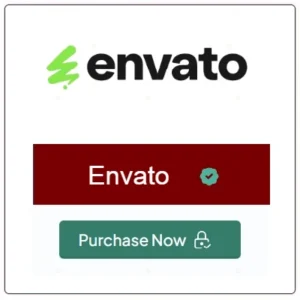
When creating content that performs well in search engine results, one of the most important initial steps is identifying the right keyword to target. This frequently enough leads to the question, “Could you please provide the keyword you’d like me to use for the article title?”
Provide the keyword you’d Like Me to Use for the Article
Asking this question ensures that writers and SEO specialists are aligned with the content goals, maximizing its visibility and relevance.
Why Asking for the keyword Matters?
Before diving into writing, clarifying the target keyword helps streamline the entire content progress process. it:
- Ensures focus: Maintaining a laser focus on one keyword boosts keyword density naturally and organically.
- Improves SEO strategy: Keywords act as the primary anchor points for optimizing metadata, headings, and links.
- Aligns expectations: Both writer and client share a clear understanding of the article’s purpose and target audience.
- Saves time: Avoids multiple rewriting cycles from content being off-topic or unfocused.
How to Effectively Request Keywords for Article Titles
Knowing how to professionally ask for the keyword at the start of a project can smooth the workflow. Here are practical tips:
1. Be Clear and Direct
Phrase your request in a polite yet straightforward way, such as:
“Could you please provide the keyword you’d like me to use for the article title?”
This phrasing shows professionalism and clarity.
2. Explain the Importance of a keyword
Briefly state why the keyword is critical to crafting effective content:
- Helps tailor content to meet SEO goals.
- Ensures relevance to your target audience.
3. Offer Suggestions
If the client or stakeholder is unsure, you can suggest potential keywords based on preliminary research to demonstrate initiative and help move the project forward.
Benefits of Specifying Keywords Upfront
Obtaining the keyword beforehand offers multiple benefits, including:
| Benefit | Description | SEO Impact |
|---|---|---|
| Content Precision | Ensures all material directly supports the keyword. | Higher relevance & improved ranking |
| Consistent Messaging | Key themes repeated strategically. | Better user engagement |
| Optimized Metadata | Keyword is prominently placed in titles, descriptions. | Enhanced CTR in search results |
| Efficient Editing | Prevents needless rewrites or off-topic digressions. | Faster time to publish |
Improved SEO Performance with keyword Clarification
Consider a website owner who initially did not specify keywords when commissioning blog posts. The resulting content was generic, diluted, and failed to rank well. After instituting a simple step to ask, “Could you please provide the keyword you’d like me to use for the article title?”, the quality of posts improved dramatically.
- Keywords became more targeted.
- Organic search traffic increased by 35% over 3 months.
- Time spent on rewriting articles dropped by 50%.
Practical Tips for Writers and Content Managers
Both writers and content managers can benefit from these actionable tips:
- For Writers: Always confirm the primary keyword before starting the draft.
- For Content Managers: provide a clear content brief with at least one focus keyword and related phrases.
- Use SEO Tools: Leverage keyword research platforms like Ahrefs, SEMrush, or Google Keyword Planner to verify and select keywords.
- Track Results: Monitor wich keywords drive traffic and refine future keyword requests accordingly.
Enhancing User Experience Through keyword Openness
Obvious communication about keywords is also critical for user experience (UX). When content is closely aligned with what users search for,visitors find the data they need quickly,which lowers bounce rates and increases time on page.
Align Keyword With User Intent
Keywords aren’t just strings of text-they represent what users want to know or solve. When you ask clients or editors for thier preferred keywords, you start a dialog to better understand:
- Is the intent informational, transactional, or navigational?
- What specific problems or questions does the target audience have?
- How can the content reasonably fulfill those needs?
Conclusion
Asking, “Could you please provide the keyword you’d like me to use for the article title?” might seem like a small step, but it lays the foundation for successful SEO content. This simple question helps clarify intent, align expectations, and significantly improve the quality, relevance, and performance of your articles. Whether you are a writer, content manager, or buisness owner, prioritizing keyword clarity can enhance SEO results, user engagement, and overall content effectiveness.





